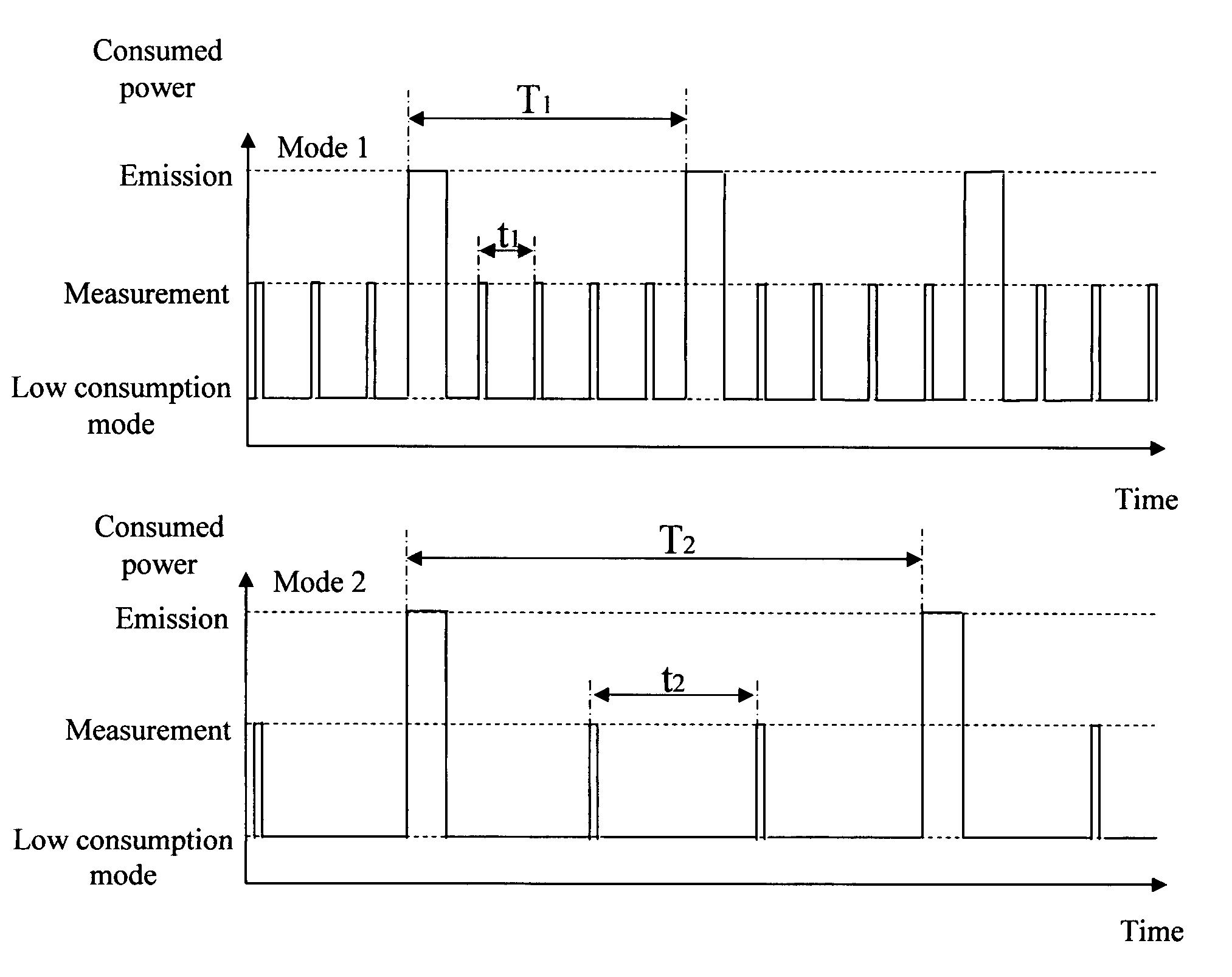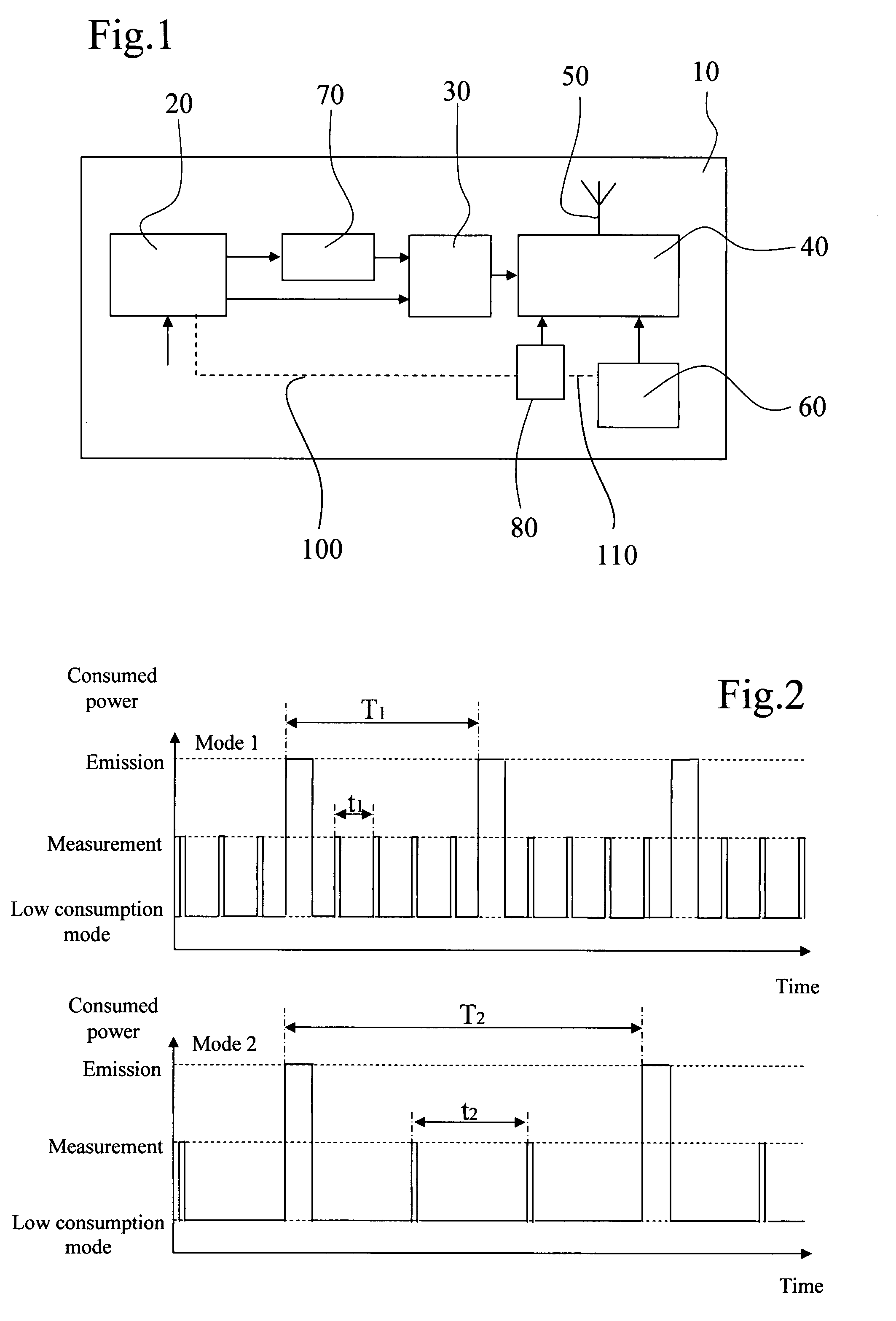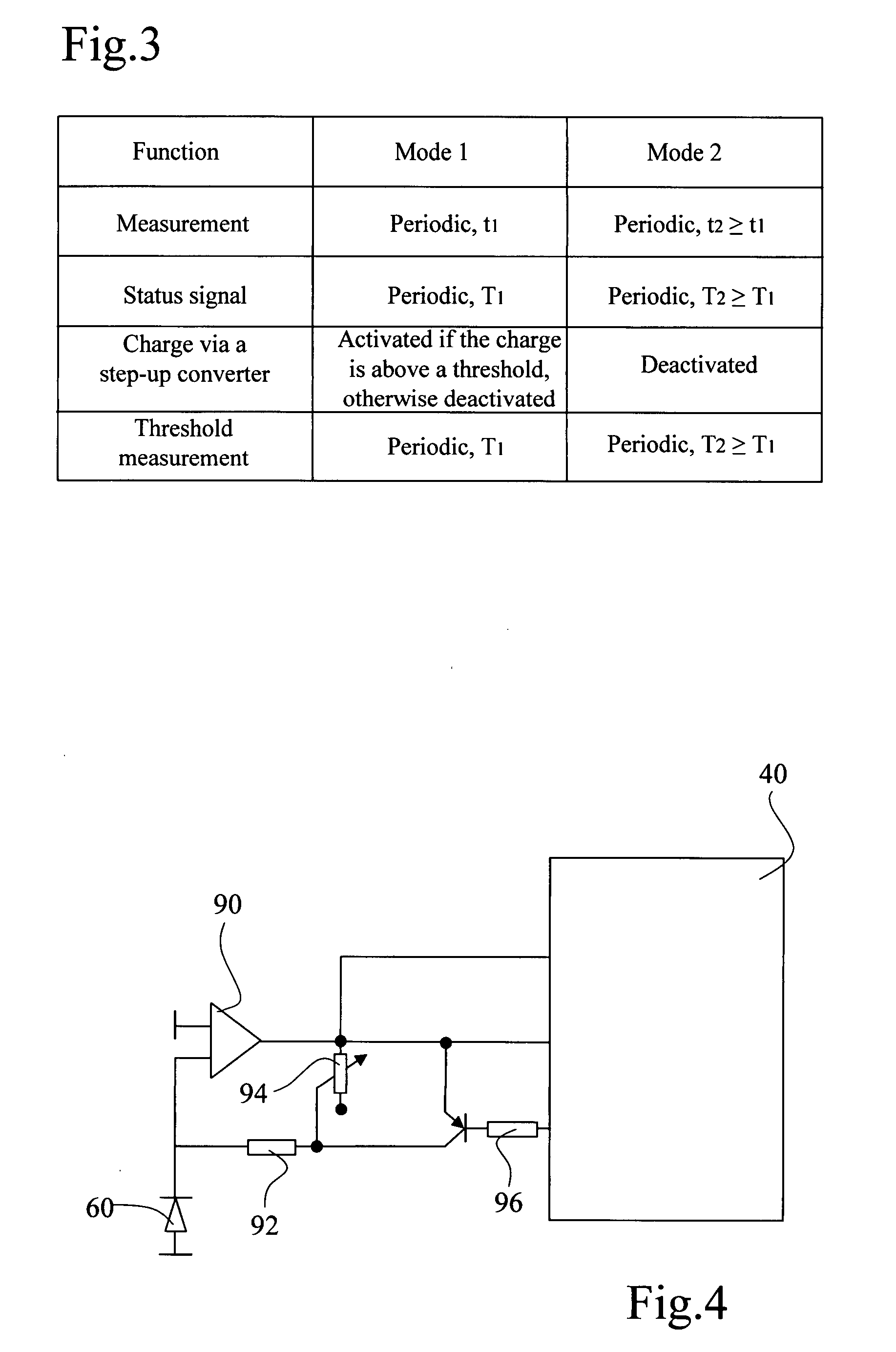Method of operating a self-powered home automation sensor device for detecting the existence of and/or for measuring the intensity of a physical phenomenon
a self-powered, sensor device technology, applied in the direction of secondary cell charging/discharging, transmission systems, sustainable buildings, etc., can solve the problems of unoptimized energy management, and achieve the effect of better energy resource management and better anticipation
- Summary
- Abstract
- Description
- Claims
- Application Information
AI Technical Summary
Benefits of technology
Problems solved by technology
Method used
Image
Examples
Embodiment Construction
[0022]The self-powered home automation sensor device 10 shown in FIG. 1 makes it possible to detect a physical phenomenon and / or to measure the intensity of a physical phenomenon, it being possible in particular for this physical phenomenon to be illumination, wind or mechanical vibration. It comprises mainly a means 20 for converting non-electrical energy into electrical energy, a means 30 for storing electrical energy, a microcontroller 40, an electromagnetic signal transmitter 50 (for example a radio transmitter), a detection means 60, a voltage converter 70 and a means 80 for determining the instantaneous power that can be converted into electrical energy.
[0023]The energy conversion means may use energy such as provided by light, heat, a vibration, a movement, an electromagnetic wave or any other form of energy available in a building or nearby the latter, in order to convert it into electrical energy. Preferably, light is converted into electrical energy and a photovoltaic cell...
PUM
| Property | Measurement | Unit |
|---|---|---|
| frequency | aaaaa | aaaaa |
| frequency | aaaaa | aaaaa |
| electrical energy | aaaaa | aaaaa |
Abstract
Description
Claims
Application Information
 Login to View More
Login to View More - R&D
- Intellectual Property
- Life Sciences
- Materials
- Tech Scout
- Unparalleled Data Quality
- Higher Quality Content
- 60% Fewer Hallucinations
Browse by: Latest US Patents, China's latest patents, Technical Efficacy Thesaurus, Application Domain, Technology Topic, Popular Technical Reports.
© 2025 PatSnap. All rights reserved.Legal|Privacy policy|Modern Slavery Act Transparency Statement|Sitemap|About US| Contact US: help@patsnap.com



